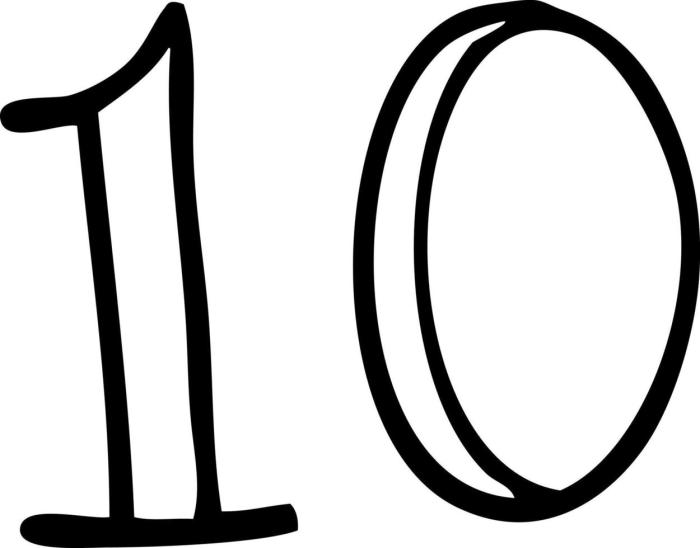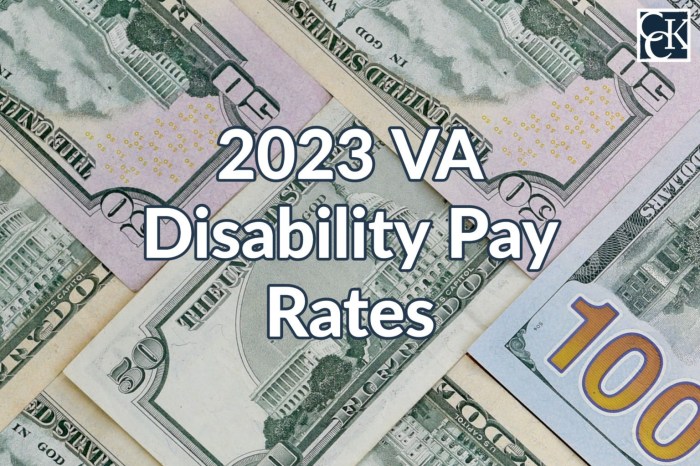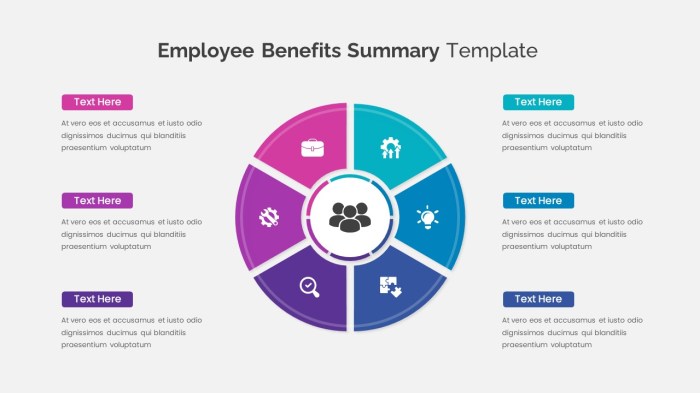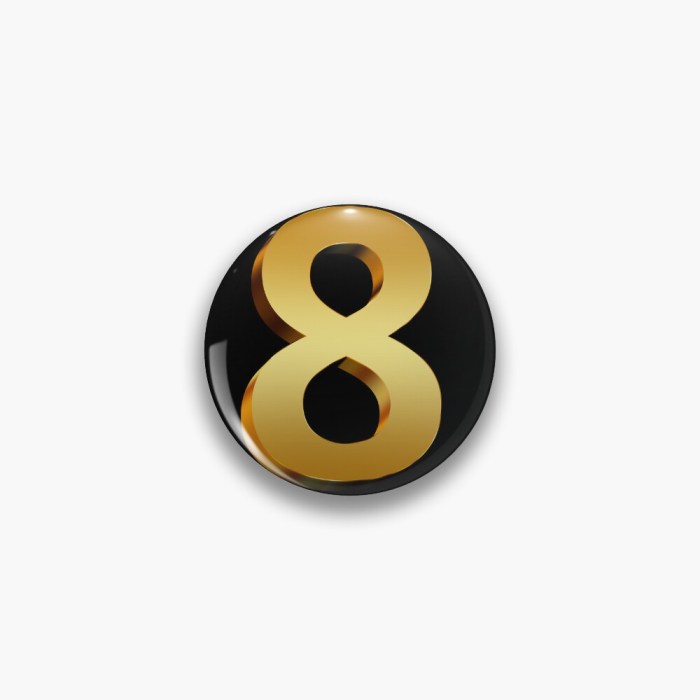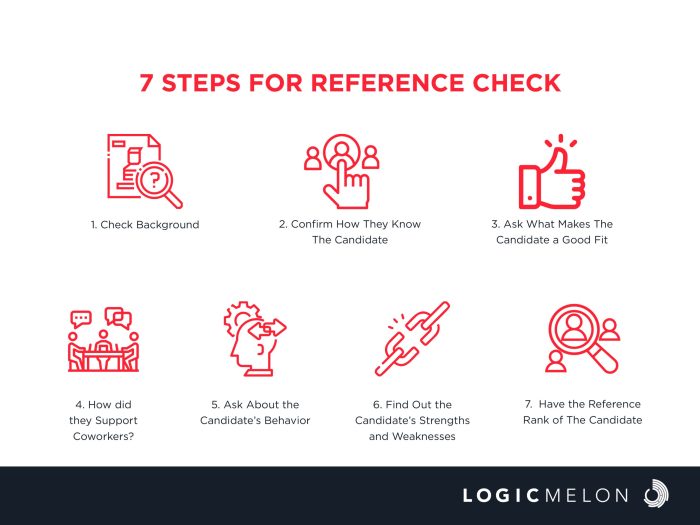Get references that will make you outstanding candidates 5 easy steps. Landing a dream job often hinges on more than just your skills and experience. A strong reference package can elevate your application, showcasing your strengths and making a lasting impression on potential employers. This guide provides a practical roadmap to crafting effective references that will position you as an exceptional candidate.
Understanding the importance of references is the first step. Strong references demonstrate your abilities and character, highlighting your achievements and positive qualities to potential employers. We’ll explore how to identify, craft, and manage your reference network to maximize your chances of success.
Understanding the Importance of References
References are a critical component of any job application, often acting as a crucial bridge between a candidate’s resume and their actual performance. They provide a vital external perspective, offering insights into a candidate’s work ethic, skills, and overall suitability for a role that a resume alone cannot fully capture. A well-crafted reference can significantly boost a candidate’s profile, while weak or absent references can severely hinder their chances.A strong reference package can offer a powerful endorsement, bolstering claims made on a resume and demonstrating a candidate’s real-world impact.
Conversely, a lack of references, or references that offer negative or unconvincing testimonials, can cast doubt on a candidate’s abilities and experiences, potentially jeopardizing their candidacy. The significance of references varies depending on the industry and the specific role.
Crucial Role of References in Candidate Evaluation
References play a pivotal role in candidate evaluation by offering a nuanced perspective beyond the candidate’s self-representation. They act as a verification mechanism, corroborating claims made on a resume and providing insights into the candidate’s character, work habits, and interpersonal skills. This external validation is often crucial in determining a candidate’s suitability for a particular role or company culture.
For example, a reference from a previous manager can attest to a candidate’s leadership qualities or technical proficiency, while a reference from a colleague can highlight their teamwork skills and communication abilities.
Impact of Strong References
Strong references significantly enhance a candidate’s profile by providing concrete evidence of their abilities and work ethic. They act as powerful endorsements, validating the claims made on a resume and showcasing a candidate’s practical application of skills. For example, a reference stating “X consistently exceeded expectations in their role, demonstrating exceptional problem-solving skills” is much more impactful than a resume claim about “problem-solving skills.” Such endorsements can dramatically increase a candidate’s appeal to potential employers.
Impact of Weak or Missing References
Conversely, weak or missing references can severely damage a candidate’s application. Negative or unconvincing references can raise concerns about a candidate’s character, work ethic, or suitability for the role. Missing references often raise suspicion about a candidate’s willingness to provide validation or potential reluctance to face scrutiny. In such cases, the lack of references can create a void in the candidate’s profile, potentially leading to their application being overlooked or rejected.
Industry-Specific Importance of References
The importance of references varies across industries. In fields requiring strong technical skills, such as engineering or software development, references from previous employers or mentors may be particularly crucial in validating the candidate’s technical expertise. In roles demanding interpersonal skills and teamwork, references from colleagues or team members can be equally valuable in demonstrating a candidate’s collaborative abilities.
Types of References and Their Value
| Type of Reference | Value |
|---|---|
| Professional (Previous Manager, Supervisor) | Validate skills, work ethic, and experience in a professional setting. |
| Academic (Professor, Advisor) | Highlight academic achievements, research experience, and critical thinking skills. |
| Personal (Character Reference) | Provide insight into personal qualities, integrity, and ethical conduct. |
| Client/Customer | Showcase impact on clients or customers, and experience in managing external relationships. |
References are a vital component in the candidate evaluation process. A well-structured reference package can significantly enhance a candidate’s profile and increase their chances of securing a desired position.
Identifying Potential Reference Sources
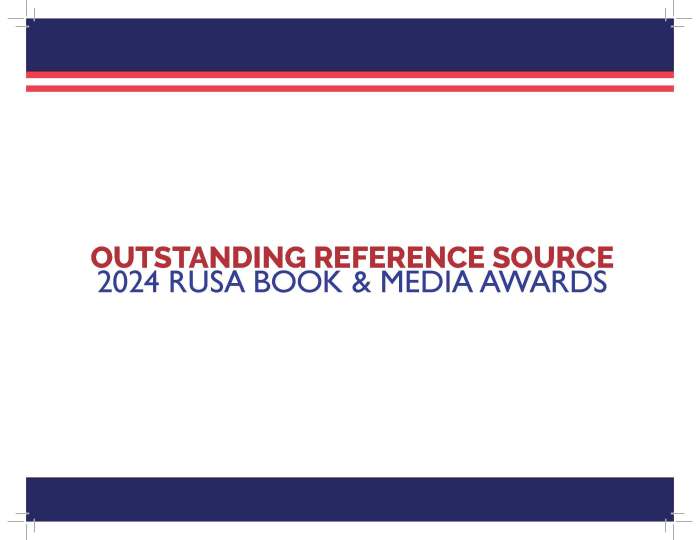
Landing a dream job often hinges on more than just your skills and experience. A compelling reference package can significantly boost your candidacy, offering potential employers a trusted perspective on your abilities. This crucial step involves identifying individuals who can speak to your strengths and achievements.Choosing the right references is akin to crafting a tailored recommendation letter. A well-selected reference can bolster your application, while a poor choice can undermine your efforts.
Careful consideration and strategic planning are key to ensuring your references showcase your best qualities.
Identifying Key Individuals, Get references that will make you outstanding candidates 5 easy steps
A strong reference speaks volumes about your character and capabilities. Therefore, you need to identify individuals who can attest to your professionalism, work ethic, and specific skills relevant to the job you are pursuing. These individuals should be people who have observed you in a professional setting, ideally over an extended period. Consider those who have witnessed your problem-solving abilities, your teamwork skills, and your commitment to achieving goals.
Landing stellar references is key for job applications, and following these 5 easy steps will make you a standout candidate. Understanding how to present yourself effectively goes beyond just a good resume; it’s about showing you’re a valuable asset. For example, a deep dive into the mindset of the wealthy, like exploring the 5 things about rich people that the middle class doesn’t understand, 5 things about rich people that the middle class doesn’t understand , can help you strategize your approach to getting top-notch references.
Ultimately, crafting those exceptional references is the final piece to a successful job application.
These are the individuals who can paint a vivid picture of your contributions and potential.
Criteria for Selecting Suitable References
Selecting the right references requires careful consideration. Favor individuals who have firsthand knowledge of your work and can provide specific examples of your achievements. Look for individuals who can speak positively and authentically about your skills and qualities. Ideally, these references should have witnessed your performance in situations that closely mirror the requirements of the job you are targeting.
Their insights should highlight how you meet the specific needs of the position. A strong reference will not only validate your experience but also demonstrate your ability to thrive in a professional environment.
Questions to Consider When Choosing References
Evaluating potential references involves thoughtful consideration. Ask yourself if the individual understands your professional goals and can articulate how your skills align with the position’s demands. Ensure they are willing and able to provide a strong recommendation. Their knowledge of your work should extend beyond surface-level observations. Their insights should demonstrate a deep understanding of your capabilities.
A reference should provide concrete examples and evidence of your performance. This evidence should be compelling and persuasive. Their perspective should align with the employer’s needs.
Want to land that dream job? Getting stellar references is key, and it’s easier than you think! Following a well-structured cover letter is also crucial, and checking out a helpful guide like best cover letter format guide nail your dream job can make all the difference. Remember, strong references, combined with a polished cover letter, will help you stand out from the crowd, boosting your chances of landing that interview.
So, follow these 5 easy steps to get those amazing references!
Obtaining Consent from Potential References
Before approaching a potential reference, it is crucial to obtain their consent. This demonstrates respect and allows them to prepare a comprehensive and insightful recommendation. Inform your references about the specific job you are applying for and the skills you wish to highlight. Provide them with the necessary information to effectively represent you. A brief explanation of your goals and expectations will allow your references to tailor their comments.
Always be respectful and proactive. Their input is invaluable.
Finding References for Diverse Experiences and Skills
Seeking references for diverse experiences and skills necessitates a tailored approach. For those with unconventional career paths or unique skill sets, consider mentors, professors, or individuals from previous volunteer roles who can provide insights into your dedication and contributions. They may have witnessed your initiative and problem-solving abilities in a different context. For instance, a project leader from a volunteer project might provide a strong reference if you are applying for a management position.
Finding references for diverse experiences requires a creative and targeted approach.
Comparing Reference Types
| Reference Type | Likely Provider | Focus |
|---|---|---|
| Supervisor | Direct manager, team lead | Work ethic, performance, technical skills |
| Colleague | Team members, coworkers | Collaboration, communication, teamwork, problem-solving |
| Client | Clients, customers, or partners | Problem-solving, project management, interpersonal skills |
| Professor/Mentor | Academic advisor, teacher, or mentor | Critical thinking, analytical skills, dedication to learning |
This table provides a concise overview of different reference types and the individuals best positioned to provide them. Each reference type offers a unique perspective on your skills and capabilities. Choosing the right type of reference is vital in crafting a compelling narrative about your professional journey.
Crafting Compelling Reference Materials
Crafting compelling reference materials is crucial for job seekers. A strong reference letter can significantly impact an employer’s perception of your skills and qualifications. Well-written references go beyond simply stating that you’re a good employee; they provide specific examples and quantifiable results to demonstrate your value. This section dives into the art of creating reference materials that truly showcase your potential.A key element in crafting compelling reference materials is the use of clear, concise language.
Vague or overly flowery language can dilute the impact of your accomplishments. Instead, focus on specific actions, measurable results, and concrete examples. This approach ensures the reference letter accurately reflects your contributions and value. Use strong action verbs to paint a picture of your impact, not just your presence.
Importance of Clear and Concise Language
Clear and concise language is essential in reference letters. Ambiguity can weaken the impact of your achievements. Avoid jargon or overly complex sentences. Instead, use precise and straightforward language that effectively communicates your contributions and qualities. This clarity allows the reader to quickly grasp the essence of your work and contributions.
Highlighting Specific Accomplishments and Qualities
References should not just state general qualities; they must showcase specific accomplishments. This involves providing concrete examples of how you demonstrated these qualities. For instance, instead of saying “a highly motivated team player,” detail a situation where your teamwork resulted in a successful project completion. The more specific the examples, the more impactful the reference letter becomes.
Using Strong Action Verbs
Strong action verbs are crucial in describing candidate performance. They add dynamism and impact to the reference. Instead of writing “managed the project,” use stronger verbs like “led,” “directed,” “coordinated,” or “orchestrated.” These verbs paint a clearer picture of your role and impact, emphasizing your active participation and contribution. For instance, instead of saying “worked on the project,” consider using verbs like “consistently delivered,” “meticulously refined,” or “successfully implemented.”
Quantifiable Results and Metrics
Quantifiable results and metrics are essential to demonstrate the impact of your work. Instead of simply stating that you improved sales, quantify the improvement. Did you increase sales by 15%? Did you reduce costs by 10%? Numbers provide concrete evidence of your contributions and highlight your value.
Want to snag those dream jobs? Getting stellar references is key. My 5 easy steps to crafting references that make you stand out as a top candidate are crucial, and they’re a great way to make a lasting impression. It’s all about highlighting your accomplishments and skills. Speaking of impressions, check out these 10 tips keeping your kitchen clean when you cook here.
Cleanliness in the kitchen, just like stellar references, shows attention to detail and a proactive attitude. By following these simple steps, you’ll be well on your way to nailing those job interviews and securing the perfect position!
This allows the reader to understand the scale of your accomplishments.
Key Skills and Experiences Table
The following table highlights key skills and experiences to showcase in references:
| Skill/Experience | Description | Example |
|---|---|---|
| Leadership | Ability to guide and motivate a team | Led a team of 5 to achieve a 20% increase in productivity. |
| Problem-Solving | Ability to identify and resolve issues | Identified and resolved a critical technical problem, preventing a significant project delay. |
| Communication | Effective communication skills | Communicated project updates clearly and concisely to stakeholders. |
| Time Management | Ability to manage time effectively | Successfully completed multiple projects within tight deadlines. |
Highlighting Positive Attributes with Specific Examples
Positive attributes, like teamwork, integrity, or initiative, are best highlighted with specific examples. Instead of simply stating that someone is a team player, describe a situation where they collaborated effectively with others to achieve a common goal. The more specific and detailed the example, the more convincing the reference letter becomes. For example, ” consistently collaborated with colleagues to ensure smooth project flow.” or “demonstrated initiative by proactively identifying and resolving potential issues before they escalated.”
Preparing for the Reference Request Process
Landing a dream job often hinges on more than just your skills and experience. Strong references play a crucial role in painting a comprehensive picture of your capabilities to potential employers. This section delves into the practical steps involved in managing the reference request process, ensuring a smooth and positive outcome for both you and your references.Successfully navigating reference requests requires careful planning and proactive communication.
This involves understanding the typical process, anticipating potential challenges, and maintaining open lines of communication with your references. This proactive approach ensures that references are prepared, and you present a consistent and compelling narrative about your abilities.
Understanding the Reference Request Process
The reference request process typically unfolds in a structured manner. Potential employers usually contact your references directly, often after an initial interview or application review. They will inquire about your performance, skills, and character. The nature of the questions will vary based on the position and the company’s specific needs. Knowing this structure allows you to prepare your references effectively.
Strategies for Handling Reference Requests Effectively
Providing your references with ample lead time is paramount. This allows them time to prepare for potential questions and accurately reflect your qualities. A clear understanding of the job description will help them tailor their responses. Encourage your references to provide detailed accounts of your strengths, particularly those that align with the job requirements.
Managing Expectations with Potential References
Open communication is key to managing expectations. Clearly explain the job description and the company’s requirements to your references. Emphasize the importance of providing honest and constructive feedback. Highlight specific instances where you excelled in previous roles, and encourage references to draw on those examples. Discuss the importance of maintaining confidentiality and professionalism.
Providing References with Ample Lead Time
Giving your references plenty of notice before a request is critical. This allows them to prepare thoroughly and ensures they can provide accurate and relevant information. A well-prepared reference will enhance your candidacy significantly. Aim to provide references at least a week before the anticipated request.
Creating a Flowchart for Requesting and Receiving References
This flowchart Artikels the steps involved in the reference process.
| Step | Action |
|---|---|
| 1 | Identify potential references. |
| 2 | Inform references of the potential request. |
| 3 | Provide references with detailed information about the position and company. |
| 4 | Allow sufficient time for references to prepare. |
| 5 | Notify references when a request is received. |
| 6 | Ensure references are comfortable providing feedback. |
| 7 | Follow up with references after the request. |
Following Up with References After a Request
Expressing gratitude for their time and consideration is crucial. This demonstrates appreciation for their willingness to assist you in your job search. Checking in with your references a few days after they have responded is a thoughtful gesture. Expressing gratitude and providing any further context needed can be beneficial.
Maintaining a Positive Reference Network: Get References That Will Make You Outstanding Candidates 5 Easy Steps
A strong professional network extends far beyond the current job hunt. Cultivating positive relationships with former colleagues and supervisors can significantly impact your career trajectory, providing valuable support and recommendations in the future. This proactive approach to relationship management ensures a robust network of potential references, fostering opportunities for career advancement and success.Nurturing these connections goes beyond simply maintaining contact.
It involves actively engaging with your network, demonstrating respect, and understanding their contributions to your professional development. By fostering these relationships, you cultivate a support system that can be a powerful asset when seeking future opportunities.
The Value of Nurturing Relationships
Maintaining contact with former colleagues and supervisors is essential for building a strong reference network. These individuals often possess valuable insights into your skills, work ethic, and professional capabilities, making them powerful advocates. Regular communication, even brief check-ins, reinforces the positive image you project and keeps your name top-of-mind. This proactive approach builds rapport and strengthens your network’s capacity to support you in the future.
Examples of Maintaining Positive Professional Connections
Regular communication, even brief check-ins, is crucial. Sending a thank-you note after a project or a congratulatory message on a promotion or achievement are simple yet effective ways to stay connected. Actively participating in professional events or online groups related to your industry can facilitate networking opportunities. Suggesting a brief coffee chat or virtual meeting to discuss professional topics demonstrates continued engagement and strengthens your relationship.
Attending industry events and participating in relevant online discussions are other effective methods.
Building a Strong Professional Network
A robust professional network is a vital asset in securing future opportunities. Seek out mentors and individuals in fields you admire. Building connections with people in your industry through networking events, online groups, or shared projects broadens your professional circle. Contributing to industry discussions or volunteering for relevant projects demonstrates your expertise and builds your profile. Attending conferences and workshops related to your field provides networking opportunities.
Maintaining a Professional Online Presence
A strong online presence can amplify the positive impact of your reference network. Maintain a professional profile on LinkedIn, ensuring your profile accurately reflects your skills and experience. Regularly update your LinkedIn profile with achievements and projects to showcase ongoing growth. Be mindful of your online reputation, as potential references may research you online. Maintain a professional and positive online presence to enhance your credibility and reputation.
Professional Etiquette in Reference Interactions
Professional etiquette plays a vital role in reference interactions. Always be respectful and considerate of your references’ time and commitments. Communicate clearly and concisely, providing them with the necessary information to answer inquiries effectively. Express gratitude for their willingness to support you.
Activities for Building and Maintaining a Positive Reference Network
| Activity | Frequency | Description |
|---|---|---|
| Sending thank-you notes | After projects, meetings | Express appreciation for support. |
| Connecting on LinkedIn | Regularly | Maintain professional connections. |
| Attending industry events | Quarterly | Network with professionals. |
| Participating in online discussions | Monthly | Share expertise and engage with the community. |
| Suggesting brief virtual meetings | Bi-annually | Reinforce relationships and exchange ideas. |
Closure
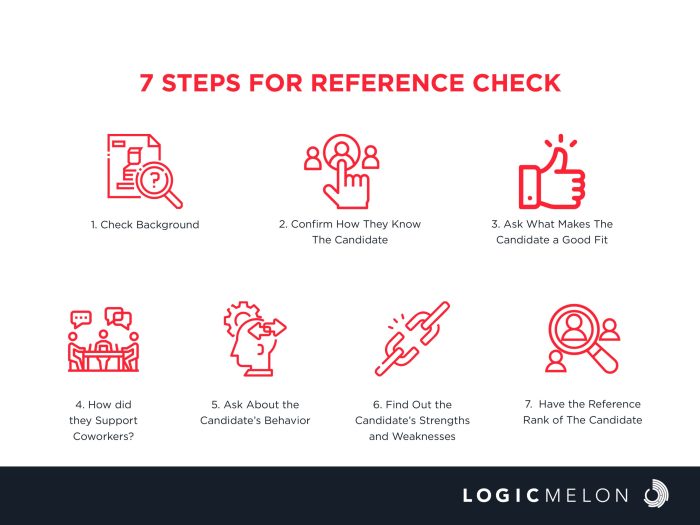
In conclusion, securing outstanding references is a strategic process that goes beyond simply having former colleagues vouch for you. By understanding the importance of references, identifying suitable sources, crafting compelling materials, preparing for requests, and nurturing your reference network, you can significantly enhance your job application process. Remember, a well-managed reference strategy can be the key to unlocking your career aspirations.
Now, let’s dive into the five easy steps to create a winning reference package.
